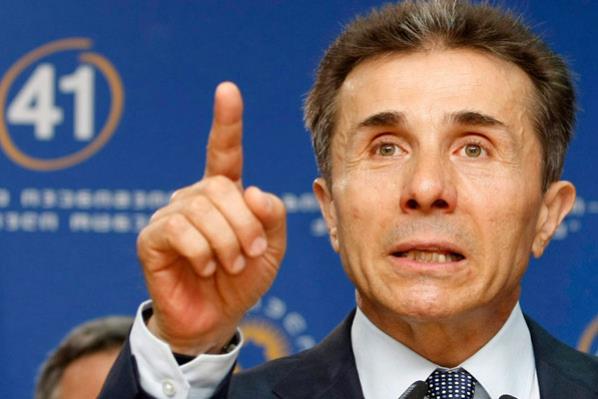
Georgia’s Reset and Russia’s Response (Part One)
Publication: Eurasia Daily Monitor Volume: 10 Issue: 110
By:

From its first days in power, the Georgian Dream coalition government under Bidzina Ivanishvili unilaterally set out to improve relations with Russia, and it has taken a series of unilateral steps toward that end. The government’s initiative stems from domestic, regional, and global considerations.
Domestically, Georgian Dream’s electoral campaign had held President Mikheil Saakashvili’s government largely responsible for Russia’s anti-Georgian policies, and the new government set out to demonstrate a clean break with the policy of its predecessor. More recently, Ivanishvili’s team threatened the outgoing President Saakashvili and former government officials with criminal investigations on several issues, including policy toward Russia (see EDM, April 3, May 24).
On the regional level, Georgia’s new government could not ignore the shifting balance of power in Russia’s favor, to the detriment of the United States and the North Atlantic Treaty Organization (NATO). Were that trend to continue, any Georgian government would need to adjust to it, sooner or later; and Ivanishvili’s team apparently decided to do so sooner.
On the global level, the Barack Obama administration’s “reset” of US-Russia relations helped set the stage for Georgia’s regime change and the new government’s own “reset” of policy toward Russia. The US administration had facilitated Ivanishvili’s rise to power in 2012 so as to encourage a Tbilisi-Moscow rapprochement, which would, in turn, supposedly ensure that Georgia ceases to be an irritant to US-Russia relations (see EDM, March 15, 18, 19).
As expected, the new Georgian government lost no time initiating steps to improve relations with Moscow. Prime Minister Ivanishvili appointed a special envoy to reactivate relations with Russia. The Georgian parliament practically removed criminal liabilities from the text of the law on Georgia’s occupied territories. The government closed down the Russian-language PIK television channel that had highlighted Georgia’s reforms to audiences in Russia’s North Caucasus and beyond (see EDM, December 5, 2012). The government made a political decision for Georgia to participate in the 2014 Winter Olympic Games in Sochi, adjacent to Georgia’s Russian-occupied territory of Abkhazia (see EDM, May 8).
Within the coalition government, Ivanishvili’s team shifted some of the responsibility for Russia-Georgia tensions onto the former Georgian government of the United National Movement (UNM). Ivanishvili and some of his closest associates claimed that the former government had provoked Russia’s 2006 decision to close its market to Georgian exports. Ivanishvili’s team held Saakashvili partly responsible for the outbreak of the 2008 war, and suggested that Saakashvili’s government had colluded with anti-Russian terrorists. Ivanishvili hinted repeatedly that he favored the Moscow-friendly politician Nino Burjanadze to become the main opposition leader and displace the UNM from that role (The Messenger, April 15).
Nevertheless, Ivanishvili’s government has adhered steadfastly to the principle of Georgia’s territorial integrity, refraining from any steps that could have compromised Georgia’s legal title to recover its Russian-occupied territories eventually. The government takes the position that it cannot restore diplomatic relations with Russia on the basis of reciprocal re-opening of embassies, as long as Russia “recognizes” Abkhazia and South Ossetia and maintains its diplomatic missions there.
That is one major issue on which Tbilisi seeks to itself define the terms of a modus vivendi with Moscow. The Georgian government pursues improved relations with Russia while at the same time calling for “de-occupation” of Georgia’s territories. Similarly, Ivanishvili’s government remains committed to the goal of joining NATO while seeking to improve Georgia’s relations with Russia at the same time.
On Georgia’s national Independence Day, May 26, Ivanishvili listed Georgia’s goals as de-occupation of its territories, strengthening ties with NATO and the European Union, and rebuilding ties with Russia (Civil Georgia, May 26). These objectives, however, are mutually contradictory, and Moscow apparently seeks to force Tbilisi to resolve that incompatibility through some tradeoffs.
On May 27, Russian border troops in South Ossetia started building barbed-wire fences along and beyond the occupation line, inside what had been undisputed Georgian territory (see EDM, June 3). The European Union’s Monitoring Mission (EUMM) reacted promptly on May 28 with a statement describing the fence-building as “unacceptable,” but EUMM could do nothing to stop the construction. The Russians have installed the barbed wire fences in several sectors, totaling some 25 kilometers in length, and variously extending from 50 meters to 300 meters beyond the occupation line (Civil Georgia, June 4). The Incident Prevention and Response Mechanism (IPRM) held a regular, pre-scheduled meeting in Ergneti on June 5 with no results, as the Russian and South Ossetian sides blocked any prevention or response.
Moscow takes the position that an international border exists between South Ossetia and Georgia, and that these fences help clarify where the “border” runs. Accordingly, Moscow has coined the term “borderization” to describe this process. Russia and the South Ossetian authorities had all along asked Georgia to hold talks on delimiting and demarcating this “state border.” Had Tbilisi done so, it would have legitimized the “border.” Once the Russians started barbed-wire fence construction, they claimed that the border line would be negotiable if Tbilisi agrees to hold talks on this matter with South Ossetia. Any further discussion on the international level awaits the next round of the Geneva talks at the end of June.




